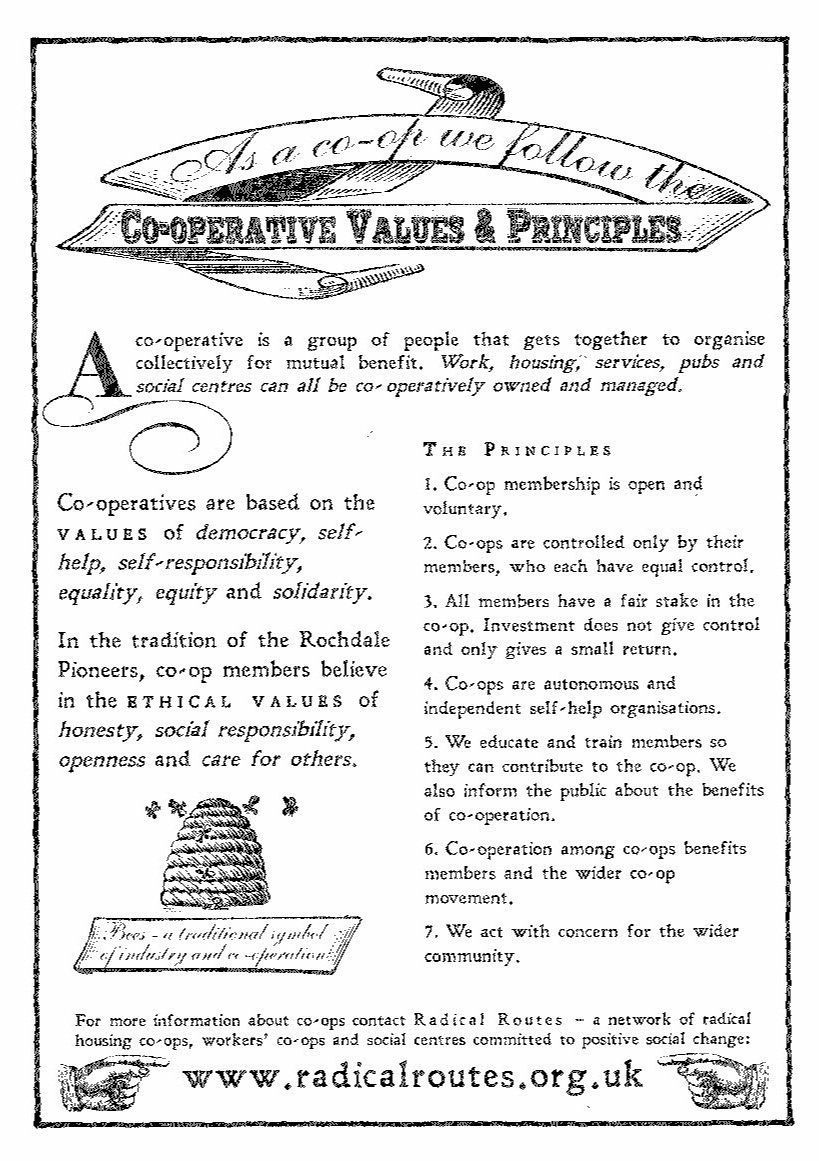Sharing Nicely a great way to work
How do you run a business without a leadership structure? Like a dream!
Sharing the skills
We rotate the roles that have some intrinsic power: the buyer, the administrator/book-keeper, even the primary cook. Every year, we swap roles and anyone new to the position is trained by the previous incumbent. That way, everyone understands and appreciates what each task entails and is in a strong position to make decisions whenever questions arise.
Shared interest
It is our shop, it pays our wages and, as registered directors, we are legally responsible for its success. So we all have an interest in making it work and no single individual has to carry all the weight on their shoulders – or receive all the benefits when times are good. Equality brings its own motivation.
Mutual Respect
Where no worker has seniority, it is vital that we respect each other’s opinions and ideas, as we make plans for the shop or deal with issues. No-one can be expected to think of everything or always be right, but creative discussion between a group of people with the same objective can usually find a solution. If we disagree, we talk it through until we either find a compromise or a way around the problem.
Mutual Support
We are not robots or “resources”: everyone has a life outside work and emotional pressures that might affect their ability to do their job. In a co-operative working environment, where there is no need to compete with or undermine others to further one’s career, it is natural to create a kind and supportive workplace, and cut each other some slack from time to time! Of course, empathetic culture is not limited to co-operatives, but it is especially important, because of our particular need to function as a happy team.
Being a workers’ co-op
A workers’ co-operative is a business run for and by its workers, rather than by an owner or external shareholders. We share responsibility equally and make decisions by discussion and consensus.
We are a not-for profit business, meaning that we cover the costs of running a shop and pay ourselves a basic hourly wage. If we ever find ourselves with a surplus of cash that we can’t allocate within the shop’s needs, we will use it to support community projects or other co-ops.
There are not many workers’ co-ops in our area, so we get asked a lot of questions about how they operate and differ from other kinds of business. If you are curious to know the answers, click on the link below!
Co-ops come in many forms and are not all run along identical lines. However, all co-ops are guided by the 7 Co-operative Principles.
For more info on co-operatives, visit uk.coop


